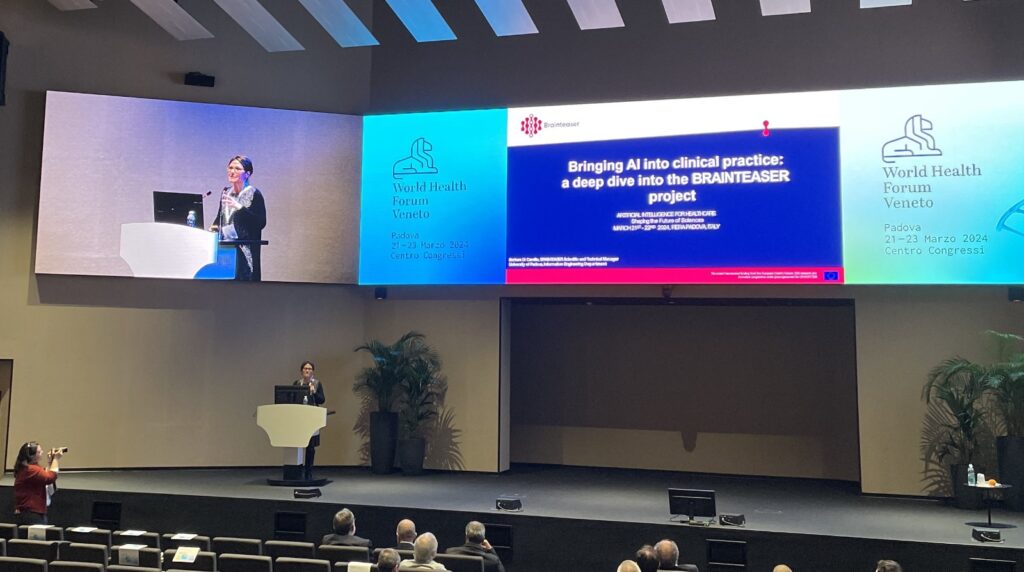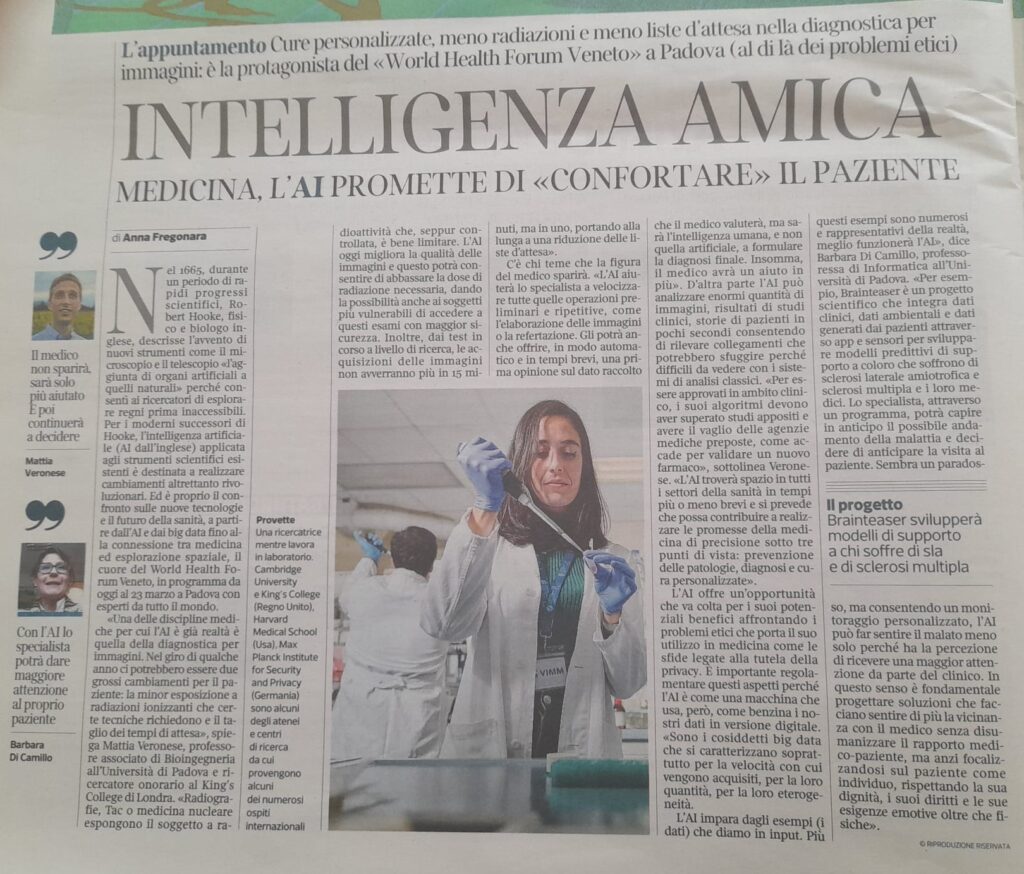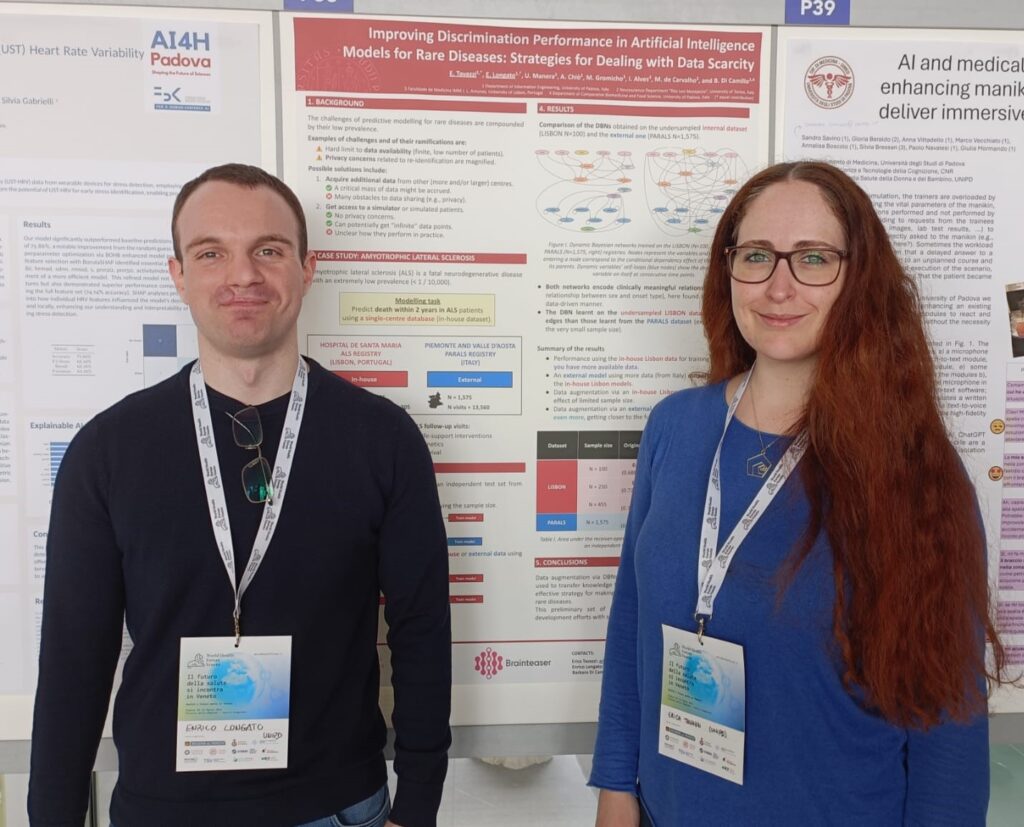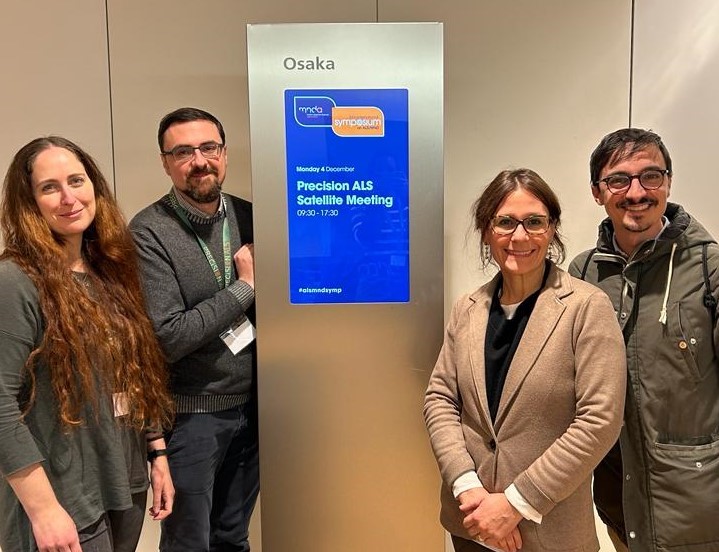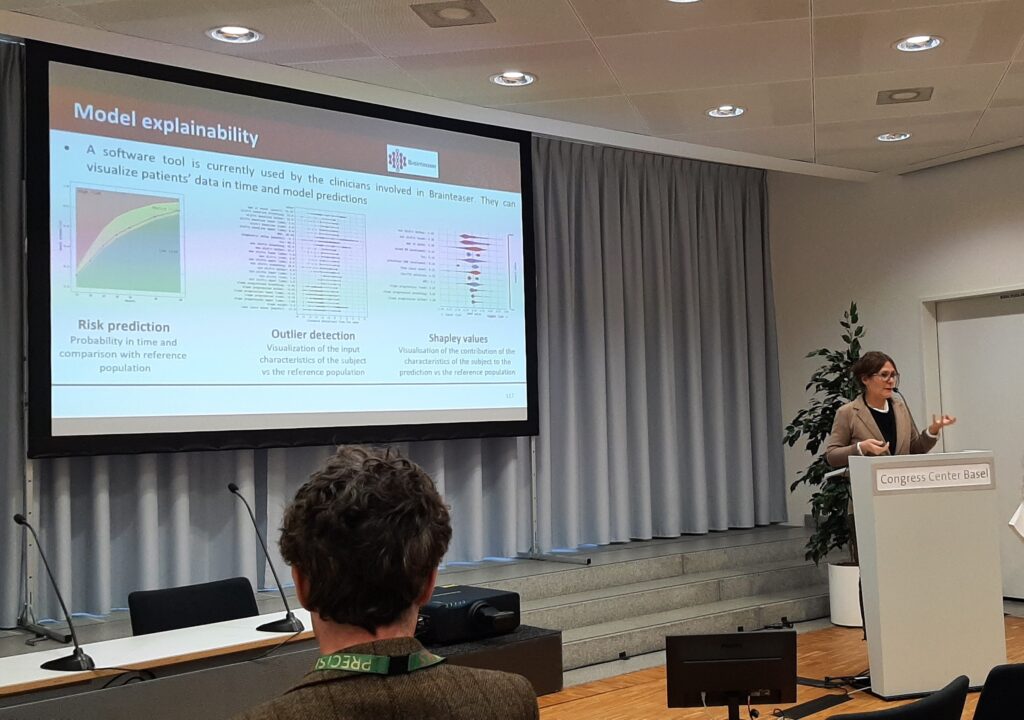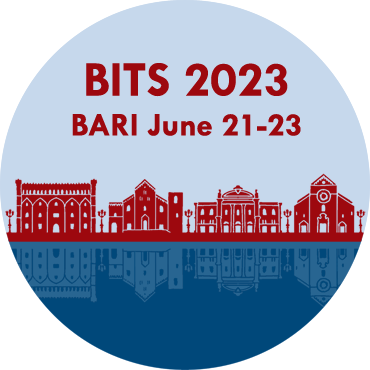On 21-22 March 2024, our team had the pleasure of attending the Artificial Intelligence for Medicine conference, hosted within the World Health Forum Veneto in Padova.
Our PI Prof. Barbara Di Camillo delivered an insightful talk titled “Bringing AI into clinical practice: A deep dive into the BRAINTEASER project”, where she presented our work to bring responsible AI into clinical practice. On this occasion, Professor Di Camillo was also interviewed by the prestigious Corriere della Sera, as featured in the article below.
This event was also an opportunity to present some of our group’s latest work. Our senior researchers Erica Tavazzi and Enrico Longato presented a poster titled “Improving Discrimination Performance in Artificial Intelligence Models for Rare Diseases: Strategies for Dealing with Data Scarcity”, sharing insights into strategies for enhancing predictive model performance with limited data.
This event, designed to examine the current state and explore the future of medical sciences and technologies aimed at enhancing care and life quality, was a great opportunity to network and foster new collaborations.
